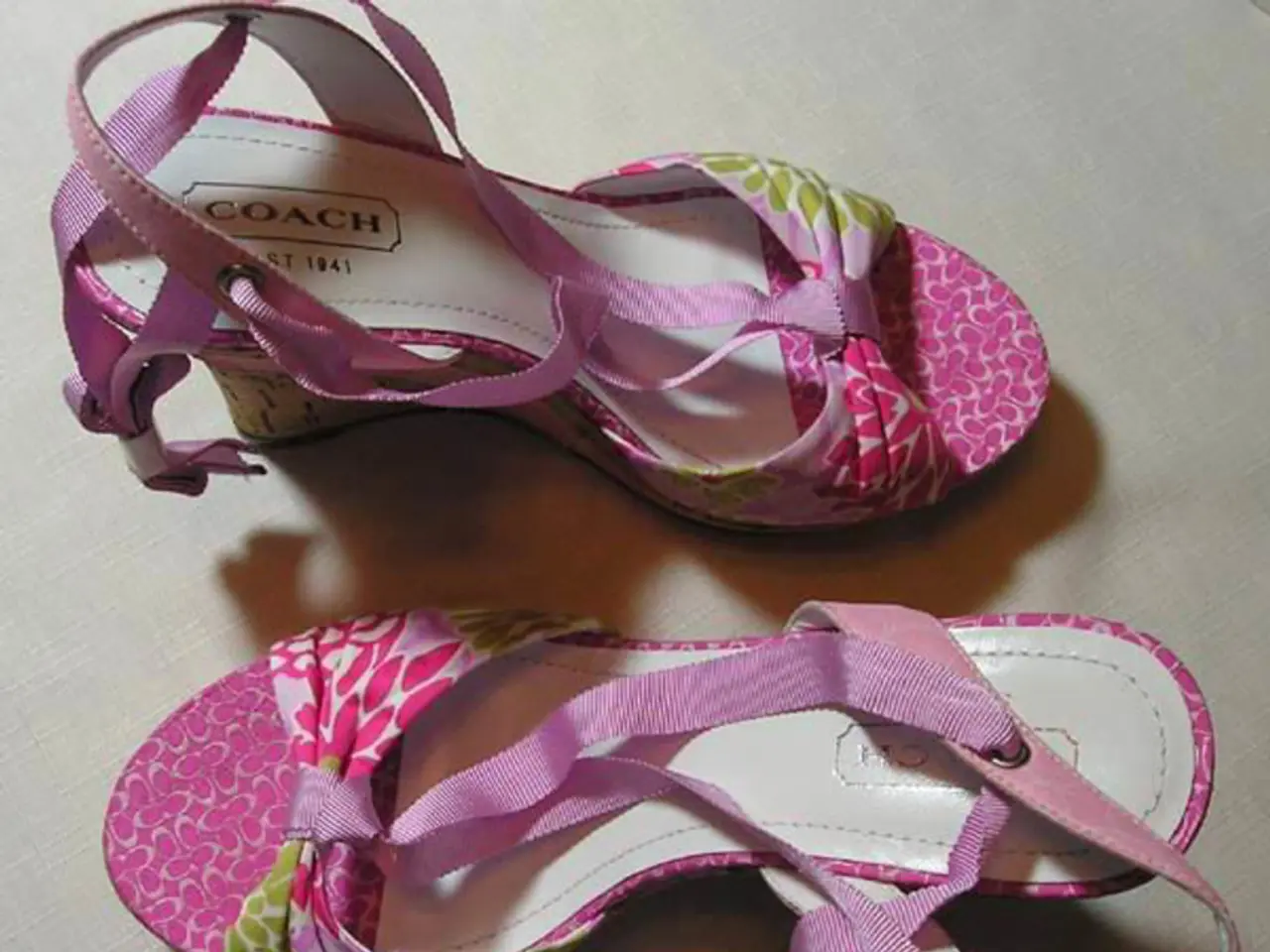Giant shoe company under fire for alleged copying of traditional Mexican sandal designs in new product launch
Mexico Proposes Legal Reforms to Protect Indigenous Handicrafts
In response to the controversy surrounding Adidas' "Oaxaca Slip-On" design, which allegedly plagiarises traditional Mexican huaraches, the Mexican government is proposing new legal reforms to safeguard Indigenous handicrafts.
The proposed reforms aim to enhance intellectual property protections for Indigenous cultural expressions, preventing global brands from exploiting traditional designs without consent or benefit to local communities. Stricter requirements for prior consultation and authorisation from the affected Indigenous communities are also being considered, ensuring that these groups have legal control and receive fair compensation.
Moreover, the government is planning to create or reinforce protocols for collaboration and fair partnerships between designers/companies and Indigenous artisans before any cultural elements are incorporated into commercial products. Government monitoring and enforcement mechanisms will also be established to identify and act against cultural appropriation, including the possibility of sanctions or demands for reparations.
These measures are in direct response to criticisms that large corporations often profit from Indigenous cultural heritage without crediting or economically benefiting those communities, as highlighted in the Oaxaca Slip-On case. While specific legislative texts are still emerging, the Mexican government’s announcement of seeking reparations from Adidas signals increasing institutional support for Indigenous cultural rights.
Handicrafts play a significant role in Mexico's economy, providing jobs for around half a million people and accounting for a substantial portion of the gross domestic product in states like Oaxaca, Jalisco, Michoacán, and Guerrero. The government's actions follow years of efforts by Mexico's government and artisans to protect traditional designs from being copied by major global clothing brands.
Mexican President Claudia Sheinbaum stated that Adidas is in talks with authorities in Oaxaca to provide compensation for the people who were plagiarised. Adidas has responded, expressing their deep respect for Mexico's Indigenous people and recognising the relevance of the criticisms. They have requested to sit down with local officials to discuss repairing the damage to Indigenous populations.
Authorities in Oaxaca have called for the "Oaxaca Slip-On" to be withdrawn and demanded a public apology from Adidas, describing the design as "cultural appropriation" that may violate Mexican law. Oaxaca state Gov. Salomón Jara Cruz criticised Adidas' design, stating that "creative inspiration" is not a valid justification for using cultural expressions that provide identity to communities.
Viridiana Jarquí́n García, a huaraches creator and vendor in Oaxaca's capital, described the Adidas shoes as a "cheap copy" of traditional Mexican work. The controversy involves a sandal design by U.S. designer Willy Chavarría for Adidas Originals, which features thin leather straps similar to traditional Mexican huaraches.
This controversy follows a similar incident in 2021, when federal authorities asked manufacturers including Zara, Anthropologie, and Patowl to provide a public explanation for copying clothing designs from Oaxaca's Indigenous communities. The proposed legal reforms in Mexico are focused on strengthening protections against cultural appropriation and unauthorised use of Indigenous designs.
- In light of the criticism towards Adidas' "Oaxaca Slip-On" design, which mirrors traditional Mexican huaraches, the government's proposed reforms aim to strengthen intellectual property protections for fashion-and-beauty items derived from Indigenous cultural expressions.
- As part of the proposed legal reforms, stricter regulations are being considered to ensure that Indigenous communities have legal control and receive fair compensation when their cultural designs are utilized in the lifestyle sector, preventing exploitation by global brands.







